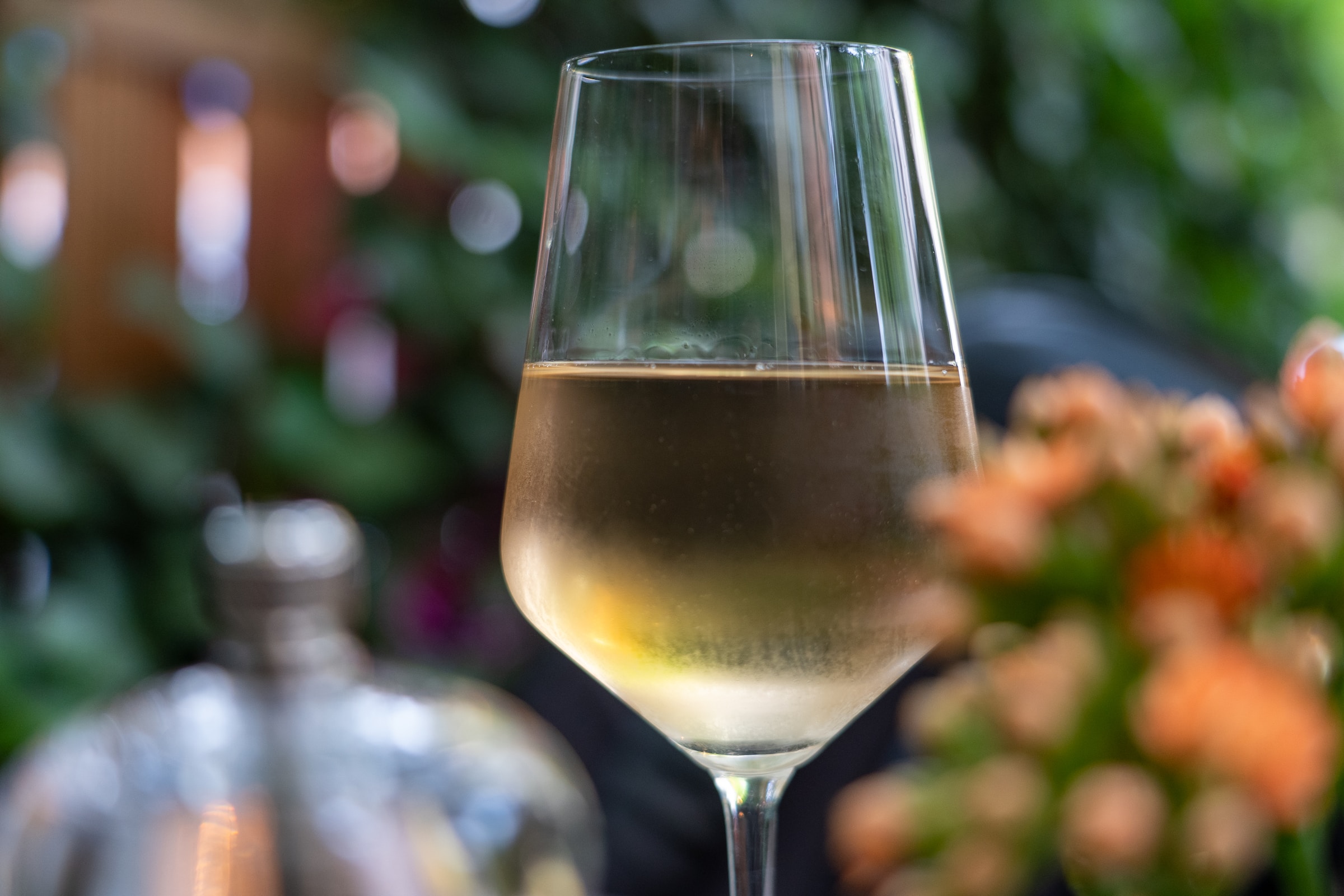
When it comes to wine terminology, things can very quickly become baffling. If you were new to the world of wine and suddenly asked to discuss a bottle’s bouquet, tannins, oak, chew, legs, or herbaceousness, you might very well be left scratching your head. The encyclopedia of wine descriptors is not a short volume or a clear one. But, while many of these terms take some getting used to, there are two descriptive words that are quite easy to understand and very important when considering the taste of any particular wine: sweet and dry.
Simply stated, sweet wine contains residual sugars and tastes sweet, while dry wines contain little or no residual sugar and do not (always) taste sweet. More on this confusion in a moment.
What makes a white wine dry?

To understand what makes a wine dry, it’s important to have a general understanding of the actual wine-making process. To become wine, grape juice has to ferment. During the fermentation process, yeast essentially eats away the sugar in the juice and transforms into alcohol. The longer this fermentation process continues, the less residual sugar a wine will have and the dryer it will be. The more residual sugar left behind, the sweeter the wine. The less residual sugar, the drier the wine.
Why does some dry white wine taste sweet?

There are a few contributing factors to why a dry wine may taste sweet. Firstly, many dry wines are fruit-forward in their flavor. As we generally associate fruity flavors with sweet ones, our brains might trick us into thinking a dry wine is sweet simply because it tastes fruity.
It’s also important to note that sugar alone isn’t the only ingredient that may cause something to taste sweet. Glycerol, which is a by-product of fermentation, can create a slight sweetness, as can alcohol itself.
Of course, the rule works both ways. Wines that are especially acidic, such as Riesling or Sauvignon Blanc, can taste drier than they actually are. Our taste buds can only perceive five basic tastes: sweet, salty, sour, bitter, and umami. In the cooking world, we balance and play with these all the time. Combining sugar with lemon makes for an incredible dessert that’s just the right balance of sweet and tart, for example. With just a bit of sugar, lemon becomes an incredibly sweet drink or dessert. Wine is exactly the same. Winemakers will often leave behind just a bit of residual sugar in highly acidic wines in an effort to strike that perfect balance. Leaving behind even just a small amount of sugar in acidic wines can make the flavor far sweeter than it actually is.
What are the best dry white wines for cooking?

Before getting into specific dry whites that are great for cooking, there are a few guidelines to remember when cooking with any wine.
Firstly, and most importantly, cook with a wine you would actually drink. While many of the complexities and nuances of the wine’s flavor will cook away, many of the notes and flavors remain. If you like it in your glass, you’re more than likely going to enjoy it in your dish.
Now, having established this first rule, cooking wine is not the time to break the bank on an incredibly sophisticated and expensive bottle. While it is important to enjoy the wine’s flavor as is, everything that makes a wine truly shine in its originality will cook off. You can find a great bottle of cooking wine that still tastes great for less than ten bucks. Promise.
Try to match the body of your wine with the richness of your food and the intensity of your flavors. Delicate dishes like oil-based pastas or steamed fish might be overpowered by a fuller-bodied white wine. Alternatively, if your dish is bold and hearty, it’s important to serve an equally bold wine that can stand up to the flavors of your dish.
If you’re cooking something rich and buttery, such as a risotto or saucy braised dish, go with a richer, dry white wine like Chardonnay or Pinot Grigio. If, on the other hand, your dish is light and delicate, like steamed trout with a more gentle flavor profile, something aromatic like Muscat would be perfect. If your dish is citrusy, we recommend a wine with similar characteristics, like Sauvignon Blanc.
Our favorite dry white wines

Of course, one of the things we adore so much about wine is its ability to shock and amaze us by breaking the rules in the most exquisitely delicious ways. However, some generalities can—for the most part—remain true. While there are exceptions to every rule, these common white wine grapes are usually dry.
- Albariño
- Chardonnay
- Grenache Blanc
- Grüner Veltliner
- Pinot Blanc
- Pinot Gris/Pinot Grigio
- Riesling
- Sauvignon Blanc
- Torrontes
- Vermentino
- Viognier



